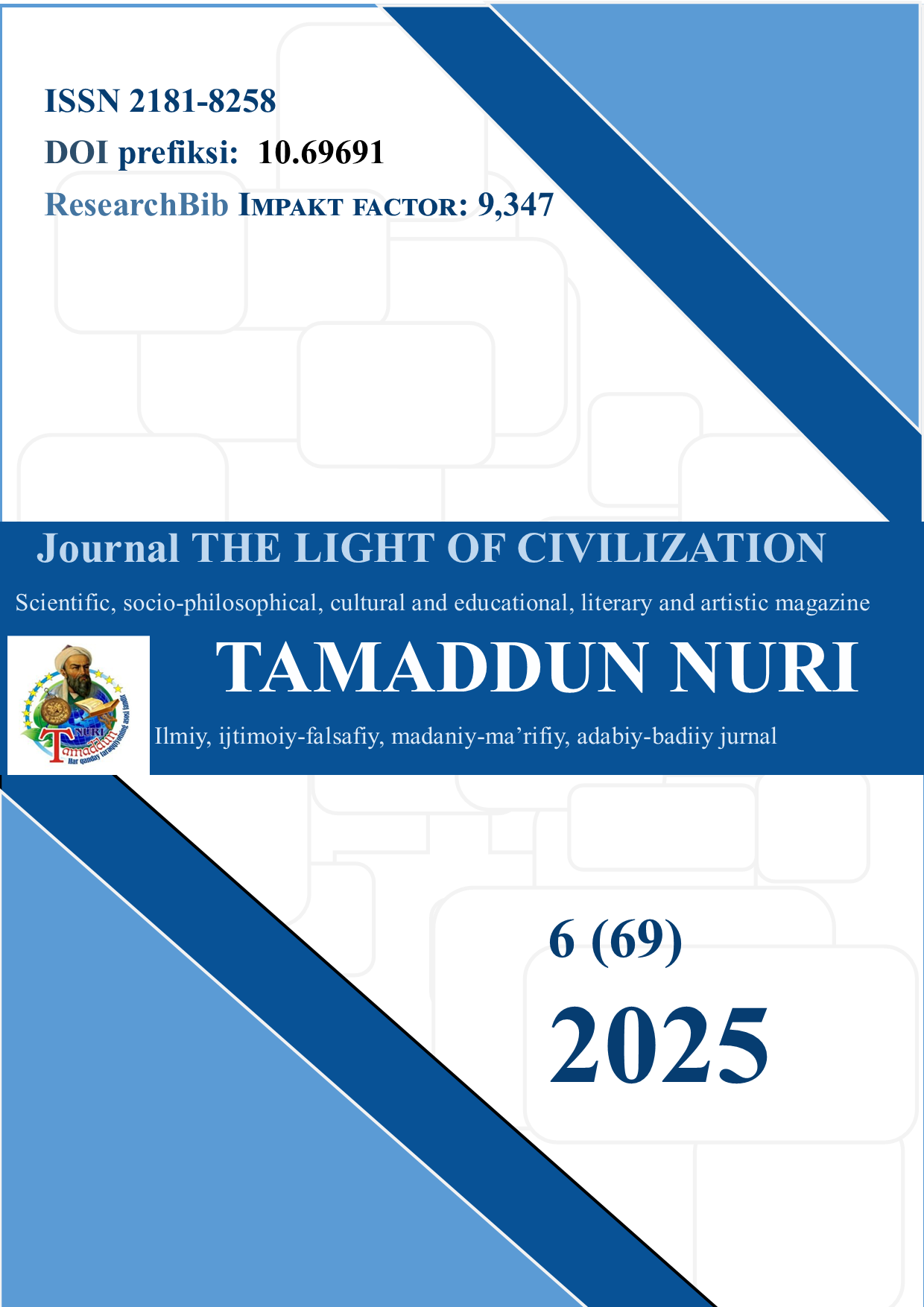TRANSLATION PROBLEMS OF LEXICAL UNITS WITH NATIONAL-CULTURAL SEMANTICS IN UZBEK AND ENGLISH LANGUAGES
DOI:
https://doi.org/10.69691/erpbz545Keywords:
national-cultural semantics, lexical units, translation problems, connotation, phraseologisms, intercultural communication, descriptive translation, contextual equivalence, translation strategies, translation of realia.Abstract
This article analyzes the main challenges in translating lexical units with national and cultural semantics from Uzbek and English. Phraseological expressions, realia, symbolic meanings, and culturally embedded concepts specific to both languages are deeply tied to national mindset, values, and historical memory.
References
Baldry, A., & Thibault, P.J. (2006). Multimodal transcription and text analysis: A multimedia toolkit and coursebook. London: Equinox Publishing.
Crystal, D. (2003). The Cambridge encyclopedia of the English language (2nd ed.). Cambridge: Cambridge University Press.
G‘aybullayev, R. (2015). Til va madaniyat. Toshkent: Fan nashriyoti.
Halliday, M.A.K. (1978). Language as social semiotic: The social interpretation of language and meaning. London: Edward Arnold.
Kövecses, Z. (2005). Metaphor in culture: Universality and variation. Cambridge: Cambridge University Press.
Kunin, A. V. (2000). English phraseology: A course of lectures. Moscow: Vysshaya Shkola.
Nida, E. A. (1964). Language and culture: Contexts in translation. Stanford, CA: Stanford University Press.
Sharipov, Sh. (2009). Semasiologiya asoslari. Toshkent: O‘qituvchi nashriyoti.
Wierzbicka, A. (1997). Understanding cultures through their key words: English, Russian, Polish, German, and Japanese. Oxford: Oxford University Press.
Yuldasheva, M.A. (2018). Lingvokulturologik birliklarning tarjimasi muammolari. Toshkent: Fan va texnologiya nashriyoti.
Downloads
Published
Issue
Section
License
Copyright (c) 2025 Journal of Tamaddun Nuri

This work is licensed under a Creative Commons Attribution-NoDerivatives 4.0 International License.



